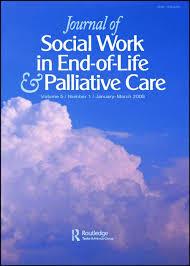Many people with advanced illness experience trauma, including trauma associated with their diagnoses, and trauma-related symptoms can complicate their care. This article examines principles of trauma-informed care (TIC) in end-of-life care. It includes a case example of a patient with advanced illness to demonstrate how TIC can be practically applied with the goal of alleviating trauma-related symptoms.
In the case presentation, an interdisciplinary hospice team uses the trauma-informed principle of universal precaution as a preventive measure, which assumes any client can have a history of trauma and seeks to avoid retraumatization. Then, the hospice team uses empathy to validate the patient’s emotions and experiences while reassuring him by explaining his physical symptoms. The team also learns about the patient’s background to better understand potential trauma-related symptoms. If symptoms are not adequately addressed, the care team educates the patient and his family about trauma and coping mechanisms such as mindfulness for dealing with the symptoms of the disease. If the patients’ needs are still not met, a diagnosis of post-traumatic stress disorder by qualified personnel is needed, as well as an assessment of the patient’s interest in trauma treatment.
This case presentation highlights the importance of trauma-informed care in hospice care to maximize quality of life and alleviate symptoms for individuals at end of life, as trauma can adversely impact quality of life. Interdisciplinary hospice team members, particularly social workers, can benefit from training to provide trauma-informed care for people at the end of life.

